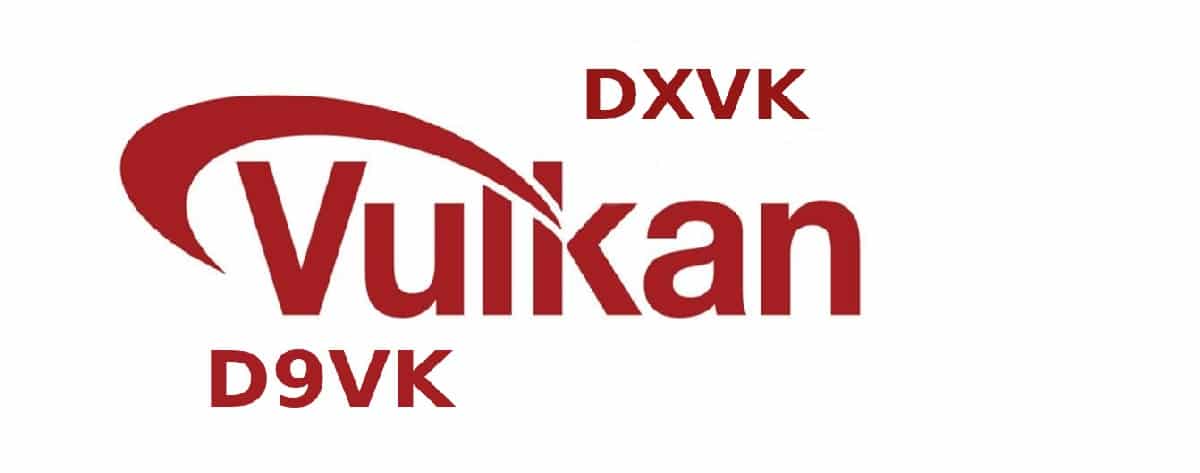
DXVK can be used to run 3D applications and games on Linux using Wine
The launch of the new version of the DXVK 2.3.1 layer was announced, which comes with the fixes for a large number of bugs in different titles, as well as improved support for Vulkan extensions, updating dependencies, and more.
The new version of DXVK 2.3.1 now requires drivers that support the Vulkan 1.3 API, such as Mesa RADV 22.0, NVIDIA 510.47.03, Intel ANV 22.0, and AMDVLK. DXVK is used to run 3D applications and games on Linux with Wine, offering superior performance to the native Direct3D 9/10/11 implementations of Wine over OpenGL.
What's new in DXVK 2.3.1?
In this new version of DXVK 2.3.1, it has been implemented to systems and if the driver supports it, the Vulkan VK_NV_raw_access_chains extension increases the efficiency of generating code on NVIDIA GPUs, bringing the performance of some D3D11 games closer to performance on Windows with NVIDIA drivers 550.40.55 or higher and Proton Experimental versions.
Besides that, redesigned method of copying system buffers to GPU for D3D9 gaming, resulting in improved performance in games such as Shank 2, Flammable Freddy and Blood Rayne.
Regarding bug fixes in titles and other minor improvements in DXVK 2.3.1:
- Fixed invalid SPIR-V generation for Renderdoc's internal D3D11 shaders.
- Fixed undefined behavior with constant out-of-bounds buffer loads with dynamic indexes.
- Fixed HDR not being enabled for DXGI_FORMAT_R16G16B16A16_FLOAT swap strings.
- Changed the dxgi.syncInterval option to also apply to D3D12 games.
- Reverted use of VK_FORMAT_A8_UNORM due to rendering issues in some games.
- D3D9 games will now set the VkApplicationInfo::applicationVersion field to 1.
- Changed the way dynamic memory buffers are copied from the system to the GPU in D3D9 games, improving performance in games such as Shank 2, Flammable Freddy, and Blood Rayne.
- Enabled only alpha coverage when rendering to a multisampled render target in D3D9, fixing incorrect lighting and dithering issues in some games.
- In Assassin's Creed 2 fixed crash on alt tab.
- Total War: Medieval 2 fixed black loading screen in windowed mode
- In Battlefield 2 and Battlefield 2142: Fixed equipment selection and spawn UI disappearing in alt tab.
- Fixed specific crashes and issues in games such as Ace Combat Assault Horizon, Battlestations Midway, Codename Panzers Phase One/Two, Dead Space (2008), Granblue Fantasy Relink, Gujian 2, Kenshi, MySims, Operation Flashpoint: Red River, SkyDrift , Sonic CD, Supreme Ruler Ultimate, Tales of Borderlands, The Settlers, UK Train Simulator 1 and War Thunder.
Finally if you are interested in knowing more about it About this new release, you can check the details In the following link.
How to add DXVK support to Linux?
DXVK can be used to run 3D applications and games on Linux using Wine, acting as a higher-performance alternative to Wine's built-in Direct3D 11 implementation that runs on OpenGL.
DXVK requires the latest stable version of Wine to run. So, if you don't have this installed. Now we will only have to download the latest stable package of DXVK, this one we found In the following link.
wget https://github.com/doitsujin/dxvk/releases/download/v2.3/dxvk-2.3.tar.gz
After having made the download now we are going to unzip the package just obtained, this can be done with from your desktop environment or from the terminal itself by executing in the following command:
tar -xzvf dxvk-2.3.1.tar.gz
Then we access the folder with the following command:
cd dxvk-2.3.1
Inside the folder we can find the necessary files for our Wine prefixes, both 32-bit and 64-bit. we are going to place them according to the following routes.
Where "user" you replace it with the username you use in your Linux distribution.
For 64 bits we put them in:
~/.wine/drive_c/windows/system32/
O
/home/”usuario”/.wine/drive_c/windows/system32/
And for 32 bits in:
~/.wine/drive_c/windows/syswow64
O
/home/”usuario”/.wine/drive_c/windows/system32/
Or in the event that you have identified the prefix where you are going to use the files:
export WINEPREFIX=/path/to/wineprefix cp x64/*.dll $WINEPREFIX/drive_c/windows/system32 cp x32/*.dll $WINEPREFIX/drive_c/windows/syswow64 winecfg
Likewise, I invite you to consult the use and compilation documentation, if it is of interest to you, in the following link